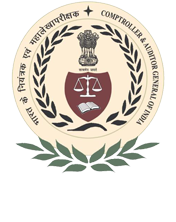Audit Reports

Nagaland
Report No. 2 of 2016 - State Finance, Government of Nagaland
Overview
This Report on the Finances of the Government of Nagaland is being brought out with a view to assess the financial performance of the State during the year 2015-16. The aim of this Report is to provide the State Government with timely inputs based on actual data so that there is a better insight into both well performing as well as ill performing schemes/programmes of the Government. In order to give a perspective to the analysis, an effort has been made to compare the normative assessment made by the Finance Commissions and achievements with the targets envisaged by the State Government in Fiscal Responsibility and Budget Management Act, 2005 as well as in the Budget Estimates of 2015-16. A comparison has been made to see whether the State had given adequate fiscal priority to developmental expenditure and whether the expenditure had been effectively absorbed by the intended beneficiaries.
Based on the audited accounts of the Government of Nagaland for the year ending March 2016, this Report provides an analytical review of the Annual Accounts of the State Government. The Report is structured in three Chapters.
Chapter 1 is based on the audit of Finance Accounts and makes an assessment of the Government of Nagaland’s fiscal position as on 31 March 2016. It provides an insight into trends in committed expenditure, borrowing pattern and a brief account of Central funds transferred directly to the State implementing agencies through off-budget route.
Chapter 2 is based on audit of Appropriation Accounts and gives the grant-by-grant description of appropriations and the manner in which the allocated resources were managed by the service delivery departments.
Chapter 3 is an inventory of Nagaland Government’s compliance with various reporting requirements and financial rules. This chapter also provides details on non-submission of annual accounts and delays in placement of Separate Audit Reports in the Legislature by the Autonomous Bodies. Besides, the cases of misappropriation and loss that indicate inadequacy of controls in the Government departments are also detailed in this chapter.
This report also has an appendage of additional data collated from several sources in support of the findings
